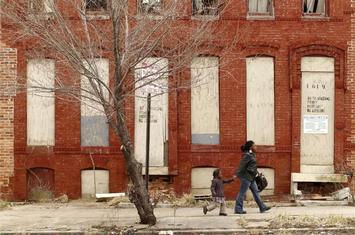
Bill Clinton may have been lionized as the “first black President,” and Barack Obama actually was half African, but no politician in American history owes more to African-American leadership and voters than Joe Biden. His campaign never smoldered, much less caught fire, until he was embraced by South Carolina’s heavily black Democratic electorate. African Americans paced his path also through states such as Texas, where he did far less well among whites and Latinos.
Yet will this triumph at the polls translate to a better life for most minorities, most of whom are working-class or poor? It depends which minorities. Biden’s commitment to healing the “sting of systemic racism” and repudiating “white supremacy” will certainly benefit the elite minorities—actors, lawyers, professors, media figures, corporate apparatchiks, non-profit functionaries—whose careers will be super-charged by demands that people be appointed to high office by race.
Viruses have no known biases, but even the pandemic cannot escape the taint of “systemic racism.” States like California are basing their re-opening policies on whether the infections and fatalities can be equalized by race, despite differences between races in health factors, housing, and work life. Some at the CDC, many state officials—including in overwhelmingly white Oregon—and numerous academic health experts have even suggested minorities get vaccinated first as a demonstration of “racial justice,” even if it threatens the most vulnerable, but grievously whiter populations of seniors.
The “Talented Tenth” v. the Vast Majority
But what about the vast majority of African Americans and Latinos? Even in the best of times, back in February, our economy was failing many of these minorities, as well working people in general. Corporate mea culpas about racism and solidarity with BLM may blunt criticism, but assertions of guilt don’t address the fundamental problem of diminished expectations, particularly in minority and working-class communities that continue to suffer economic distress and hopelessness. Minorities make up over 40% of the nation’s working class and will constitute the majority by 2032.
In writing about African-American progress, the great 20th-Century philosopher W.E.B. Du Bois embraced the notion of “the talented tenth”—the educated upper stratum of black America—as the primary vehicle for social change. Others with a more popular touch embraced either the crude nationalism of Marcus Garvey or the ameliorative, grassroots improvement approach of Booker T. Washington.
The elitist vision of minority outlook was epitomized by the Obama Administration, where African Americans and other “people of color” enjoyed enormous influence and access while the conditions for middle- and working-class minorities generally declined. Minorities with elite degrees flourished, but policies that protected banks and targeted homeowners wiped out much black and Hispanic wealth. “The first black president in American history,” notes the widely-read Marxist blog Jacobin, “ turned out to be a disaster for black wealth.”
Read the rest of this piece at American Mind.
Joel Kotkin is the author of The Coming of Neo-Feudalism: A Warning to the Global Middle Class. He is the Presidential Fellow in Urban Futures at Chapman University and Executive Director for Urban Reform Institute. Learn more at joelkotkin.com and follow him on Twitter @joelkotkin.












